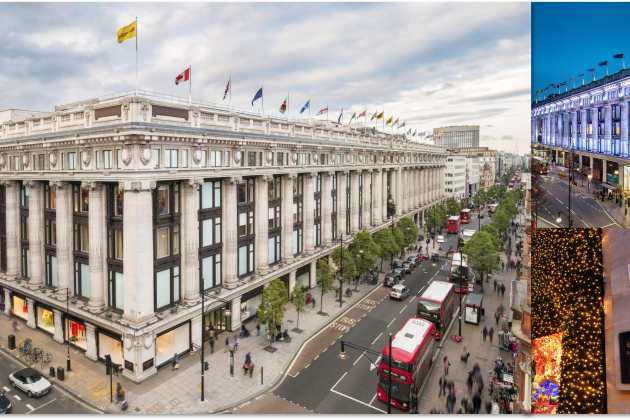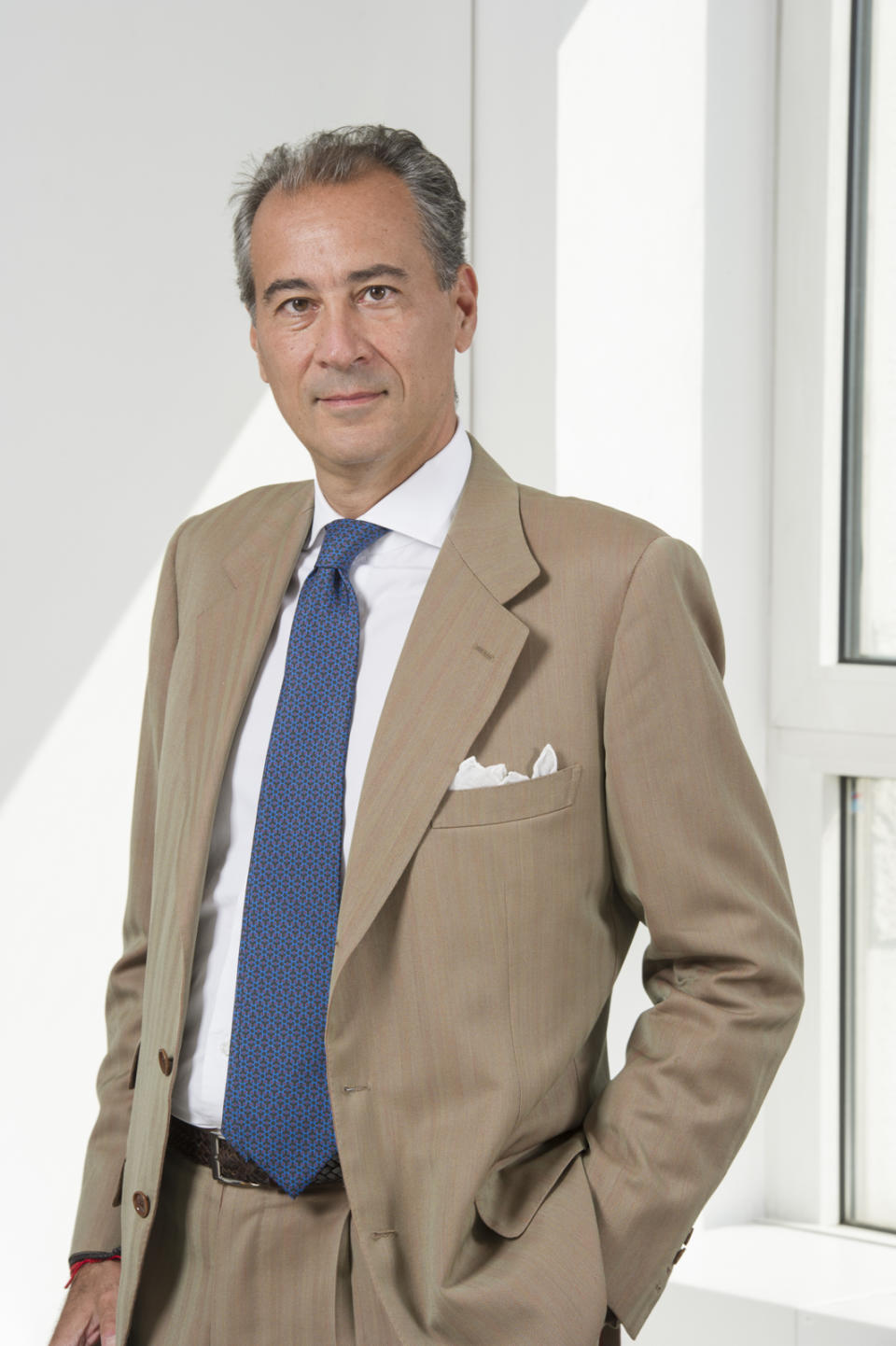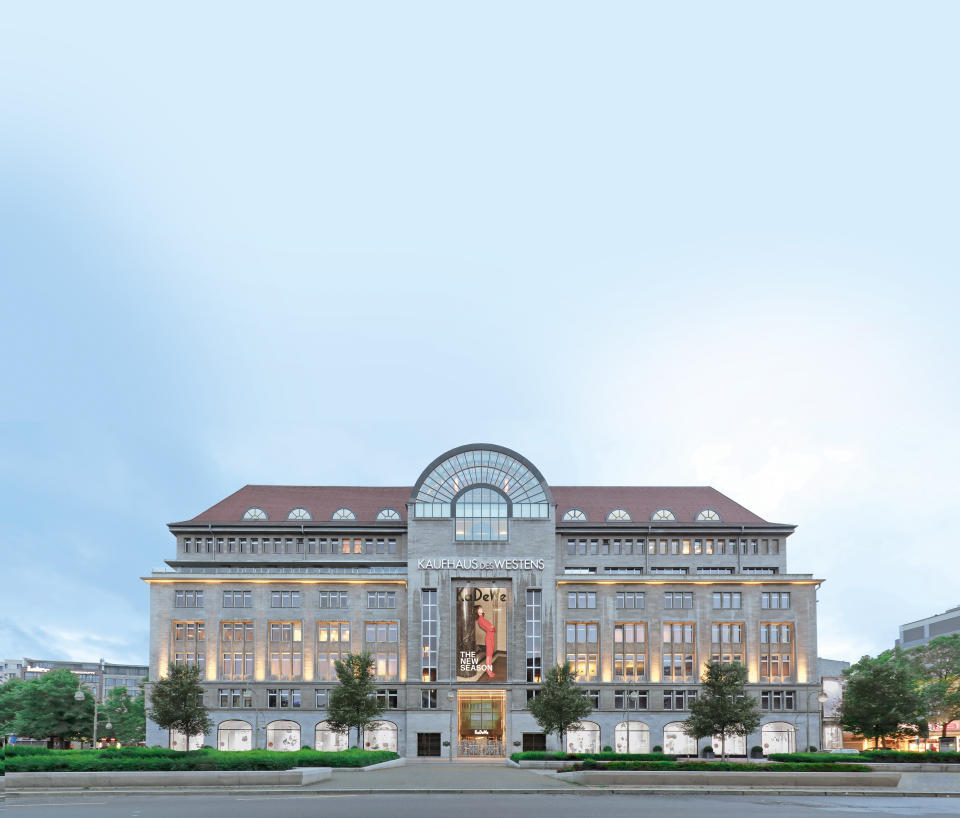Central Group Europe CEO on Opportunities Ahead With Selfridges

MILAN — The closing of the deal between Thailand’s Central Group and Signa to buy Selfridges Group under a 50/50 partnership is expected by the end of June, but the wheels have already been set in motion, with several projects in the pipeline that are sure to shape the future retail scene.
“This is a unique case, because in Europe, we as Central Group with Signa and Selfridges were the only ones bringing forward a project of aggregation of luxury department stores, consistent in terms of business model and with a very long-term vision,” said Stefano Della Valle, chief executive officer of Central Group Europe, in an exclusive interview here.
More from WWD
Inside the Temple of Parisian Lifestyle: Pictures of La Samaritaine
Unites States Retail in the Aftermath of Police Brutality Protests
The deal includes the Selfridges Group’s portfolio — which is made up of 18 department stores, including Selfridges in London, Manchester and Birmingham, England; de Bijenkorf in the Netherlands; Brown Thomas and Arnotts in Ireland, and their associated e-commerce platforms and the properties in London, Manchester and five locations in Ireland.
The transaction will see Selfridges Group become part of the combined Central and Signa portfolio of luxury department stores, which includes Rinascente in Italy, Illum in Denmark, Globus in Switzerland, and The KaDeWe Group that operates in Germany and Austria, for a total of 40 stores.
Della Valle characterized this as “a collection, not a chain, of stores,” associated by the same guiding principle: Their position in each city center and their centenary history.
“We see these stores as pillars of the city center, just as a museum or a church, now that cinemas and other recreational activities have been decentralized,” said Della Valle.
Shopping is no longer the sole attraction of these stores, which offer entertainment experiences, he noted. “We’ve worked patiently on this business model and it’s not easy. We transformed Rinascente from a traditional store into a luxury destination through an important restructuring of existing stores, closures and openings, as not all could stand as department stores for the future.”
Della Valle admitted the approach to Selfridges Group was “timid and reverential,” in light of its stature. “It has always represented a point of reference, but through our due diligence, we found major similarities between Central Group, Signa and Selfridges, all controlled and operated by a family with a very long-term industrial project and a solid and real estate presence.”
Central Group is controlled by the Chirathivat family, and operates retail businesses in Thailand and Vietnam, as well as in Europe.
As reported, only the Canadian business, Holt Renfrew, will remain with Selfridges’ previous owners, the family of the late Galen Weston. He purchased Selfridges in 2003. Another wing of the family operates Associated British Foods, owner of fast-fashion retailer Primark.
Della Valle did not reveal how much Central Group and Signa paid for Selfridges Group, saying it was “not far from the 4 billion pounds reported by the press when the deal was revealed in December, but not that specific amount.”
Pre-pandemic, Central Group, Signa and Selfridges Group reported combined sales of 5 billion euros. “We believe the group can reach sales of 9 billion euros by 2030,” said Della Valle.
The executive is expecting a “very smooth” integration with Selfridges, since it offers the opportunity to immediately focus on its development, as there is no need for a restructuring, as was the case, for example, with KaDeWe and Globus.
“With Selfridges we don’t see any potential redundancy, and we don’t need to restart the business, which is solid. The relations with partners and luxury brands are great and there is no need to change the brand mix or business model, which perfectly coincides with ours,” offered Della Valle.
On the other hand, there are additional opportunities, as the food area at Selfridges “is not in line with the other categories and can be improved through our expertise in the food market. We can take it to the next level,” claimed Della Valle, citing, for example, the strength of the “delicatessen” area at Globus. “People now are more inclined to buy high-quality food [in a department store] compared with the past. Restaurants are always a catalyst, and it’s always better to allow access independently of the opening hours of the stores.”
Also, the group plans to redevelop The Selfridge Hotel on Orchard Street in London, which has been closed for years. “There are so many hotels in London but I believe there is room for everybody, this is such an important touristic and residential area,” he contended. The hotel will be a five-star venue and it will be operated by a third-party specialist “in line with the quality of Selfridges and London in that area.”
The group is also looking at reducing the amount of space decided to a parking lot nearby for either more retail space or to develop a residential project.
Similarly, in Vienna, the group is planning to open a luxury department store in October 2024, whose name is still under wraps, and a hotel.
The acquisition of Selfridges is seen as “a booster” for the group’s online business, as it is “more mature” and will help to “support and give us credibility with the brands,” he remarked, noting that Selfridges ships to 160 countries. The group’s stores have online platforms everywhere but not in Denmark, while Italy and Germany were the last to add e-commerce.
“We want to be able to provide the same offer and service on and offline as a single point of reference,” Della Valle explained.

© Fabrizio Annibali
He was also adamant that, at least under his watch, he would never consider opening units for the stores in other countries. “Never in my life would I open a Selfridges in Dubai,” he said, as an example. “I know others have done it, Printemps has, Galeries Lafayette I hear is exploring India, but I believe that if I go to Paris, I won’t be looking for Rinascente.”
He also said that the single banners “must remain independent because we believe in local management, marketing, buying and relations with customers. We don’t want a chain, we can’t copy and paste a business model. We can see the synergies, but operations must remain close to customers and to the market.”
Della Valle underscored that it is key to “never stay still, always offering new brands and new services and new formulas — it’s a daily job,” and that the group has “perhaps suffered less than others” through the COVID-19 pandemic, thanks to “an increased domestic spending power in some areas.” But the lack of tourists weighed on the performance, especially in Italy, where Chinese and the Russian tourists were the first and second highest-spending consumers, which could not be compensated for by local shoppers.
However, he was confident tourists sooner or later will return. “We believe the stores in the city centers will remain fundamental, or we would not invested [in the Selfridges Group deal]. And for luxury brands, the department store — the way we manage it — is the only alternative to the store on the street.” Concessions are increasingly luxury brands’ preferred choice as they streamline their wholesale accounts.
“Not all luxury brands believe in investing in stores in second tier-cities such as Rotterdam or Maastricht, for example, but they still view them as interesting destinations and we can ensure an important foot traffic and present their products in an environment in line with their standards,” continued Della Valle.
Also, the group does not rely only on established labels and he noted that it is costly for smaller brands to open in key, central streets in cities such as Milan, Berlin or London. Department stores offer the quality of service, the environment and the foot traffic that can help them grow their businesses.

Pedro Becerra - STAGEVIEW.de
Sign up for WWD's Newsletter. For the latest news, follow us on Twitter, Facebook, and Instagram.


